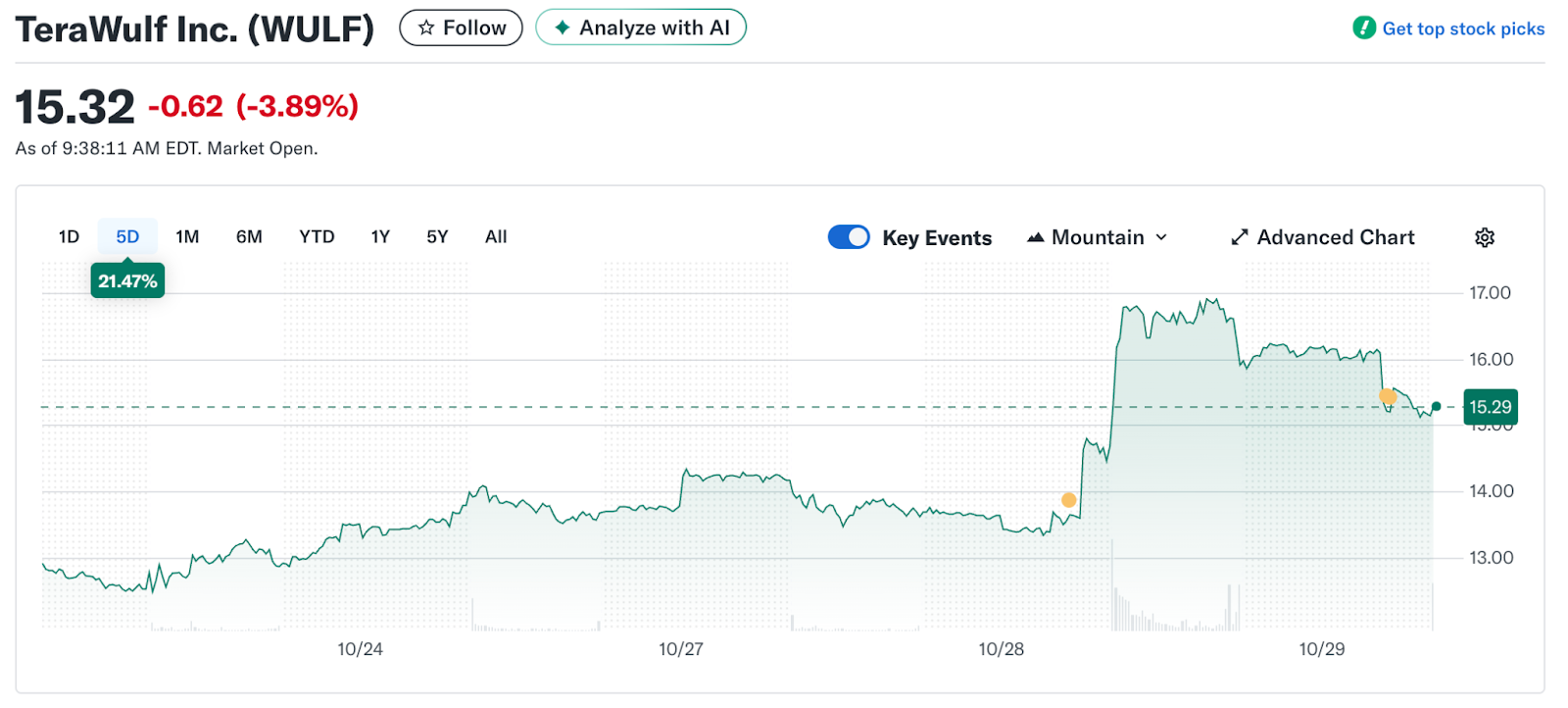
TeraWulf has announced the launch of a $500 million private placement of convertible notes maturing in 2032 — a major strategic move aimed at advancing its next-generation data center development in Texas. The capital will also support ongoing corporate initiatives as the company accelerates its pivot into advanced computing.
Under the agreement, underwriters will have a 13-day option to purchase an additional $75 million in notes, potentially increasing total funding to $575 million.

The upcoming Texas data center campus represents one of TeraWulf’s most ambitious projects to date. The facility is expected to support high-performance computing (HPC) workloads including artificial intelligence applications, signaling a continued departure from traditional cryptocurrency-only mining.
The company currently operates sustainable mining and HPC centers powered by carbon-free energy sources in New York and Pennsylvania — positioning Texas as a key third location in its national infrastructure footprint.
Following the funding announcement, TeraWulf’s stock dipped nearly 4% to $15.32, reflecting short-term investor caution amid rising industry leverage.

The move is part of a broader transformation occurring across the digital infrastructure sector. TeraWulf has steadily redirected capital toward high-growth AI demand:
This rapid expansion underscores increasing dependence on AI workloads as mining economics fluctuate following multiple Bitcoin halving cycles.
Competitors are making similar pivots:
Analysts at VanEck report that crypto miner debt has surged from $2.1B to $12.7B over the past year — a sixfold increase — as companies simultaneously chase profitable AI demand and keep mining operations afloat.
Texas has become one of the most competitive U.S. markets for AI-ready data infrastructure, with energy-rich regions offering cost-efficient power agreements and welcoming new technology investments. If completed as expected, TeraWulf’s new campus could become a major compute provider supporting both hyperscale AI and enterprise-level training environments.
Originally reported by Forklog.